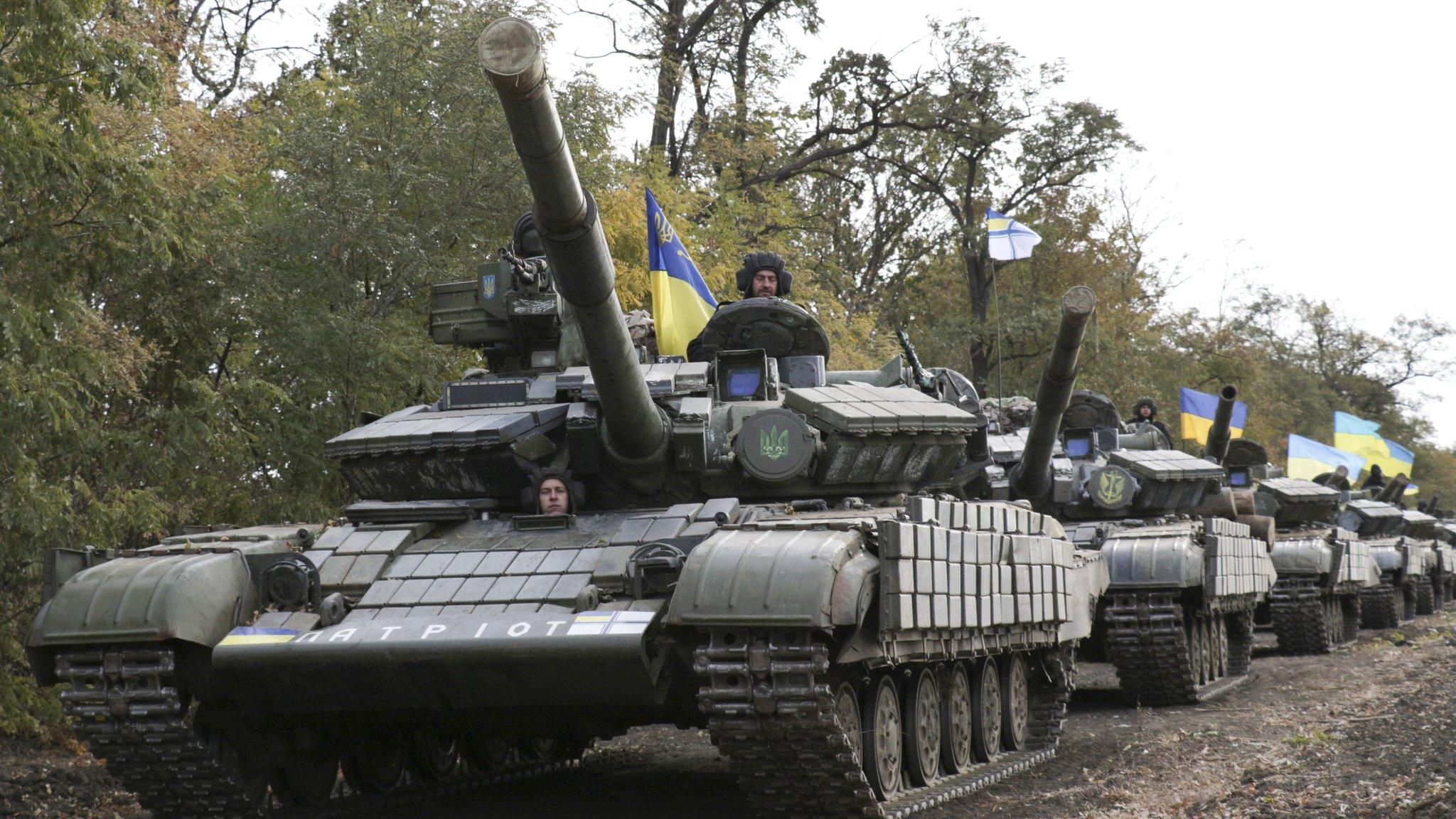Ukraine crisis: Crimea in the dark in Russia power row
- Published
Ukraine works to restore Crimea electricity pylons
Electricity pylons and cables lie amidst a sea of mud, in a field outside the southern Ukrainian town of Chaplynka, tangible reminders of the fragility of Russian and Ukrainian relations.
Tensions are again escalating between Kiev and Moscow, after a period of relative stability.
Unidentified individuals blew up four pylons in two locations in southern Ukraine at the weekend, near the border with the Crimea peninsula, which the Kremlin annexed last year.
The explosions severed the flow of electricity to Crimea and plunged it into darkness. Schools were shut down and hospitals ran on reserve generators. Local officials declared a state of emergency.
On Wednesday, Moscow and Kiev both announced that Ukraine would no longer receive Russian natural gas deliveries, although it was unclear which side actually initiated this cut-off.
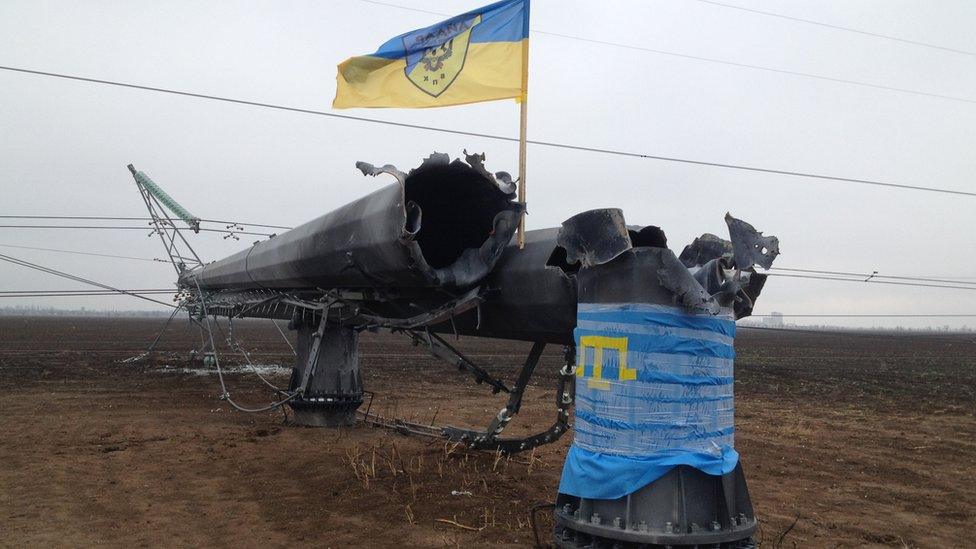
A state of emergency was declared in Crimea because of the power cut
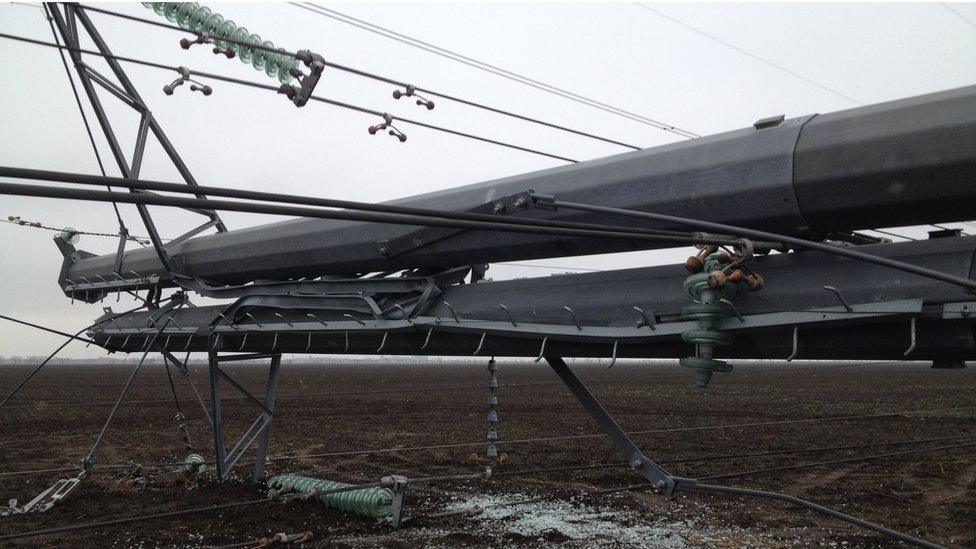
Renovation work began on one of four main power lines into Crimea
At the same time, Ukraine said it was banning all Russian aircraft from flying over its airspace.
All this takes place as fighting intensifies between government troops and rebels, whom Moscow by all appearances supports with men and firepower.
A ceasefire in September lowered the violence to nearly zero, but the number of dead and wounded is once again mounting.
Relations between the two countries are poor, to put it lightly.
Still, so far there has not been a complete breakdown.


Cars queue at a checkpoint erected by ethnic Tatars in Kherson region near Crimea

Ukraine has officially declared Russia an "aggressor nation" and the fight in its east an "anti-terrorist operation".
But Kiev has stopped short of calling it a "war," and ties between them exist but are greatly reduced.
Each escalation of the conflict, or the war of words between the countries, raises fears that the fighting will return to the massive bloodshed of earlier this year or, if allowed to spiral out of control, to an all-out conflict.
That explains the concern over the mud-splattered electrical equipment in southern Ukraine.
Renovation work has begun on one of the four trunk lines into Crimea.
Maintenance workers re-erected the pylon on Tuesday and the following day made preparations to raise the electrical cables.
Cables were stretched and in some spots slightly lifted, but the labourers stopped short of hoisting them fully on to the pylons.
This one line would restore up to 40% of Crimea's power supply, according to local reports. However, it is unknown when the power will finally be switched on.
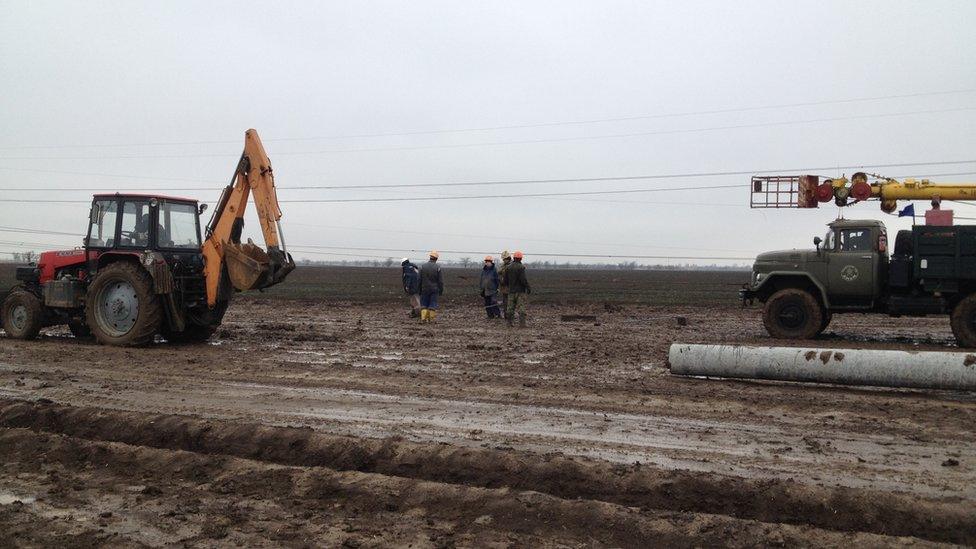
Maintenance workers re-erected one main pylon and have begun the raise electricity cables
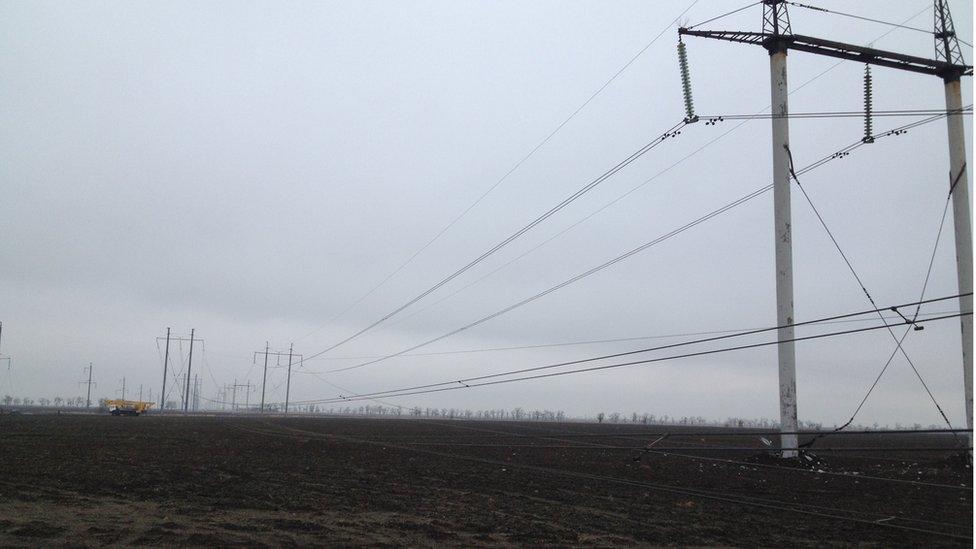
But there is no indication when the power will be turned back on
The explosions come after political activists - mostly ethnic Crimean Tatars and members of the Right Sector ultranationalist group - imposed a "blockade" on Crimea, to protest its annexation by Russia and reports of widespread human rights abuses there.
This consisted of setting up checkpoints at the two main entry points into Crimea and stopping all cars and trucks trying to transport goods into the region.
"I'm protesting because in Crimea people can't live peacefully," said Roman Ragozin, an activist wearing camouflage and the insignia of the Aidar volunteer military battalion.
"They're being beaten, and are being searched in the middle of the night - just because they support Ukraine."
Kiev officials said they understood the reasons behind the protest and did nothing to stop it, despite its extra-legal character and reports that a number of the activists were using intimidation and force against motorists.
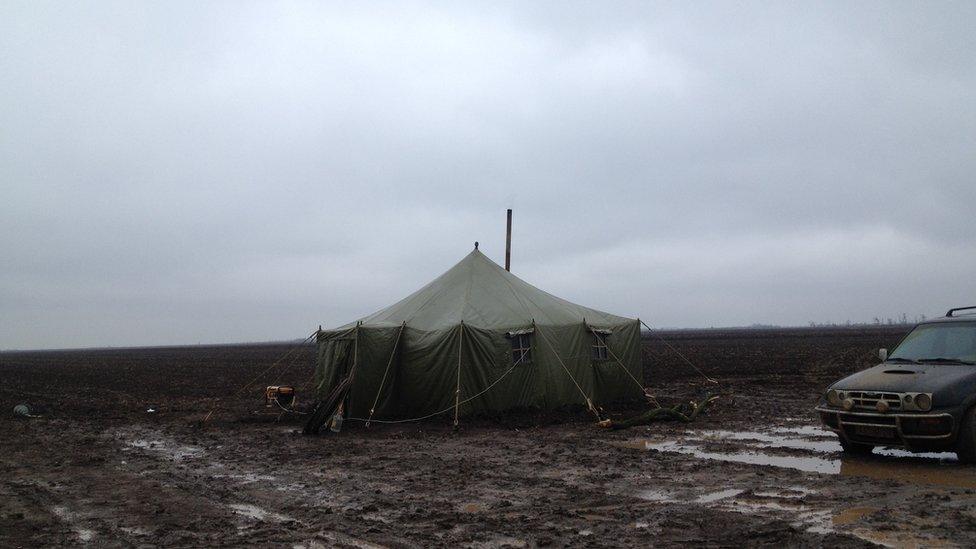
Activists are keeping an eye on the workers, ensuring they do not complete their work
Judging by the quiet at the site of the fallen electrical posts, the government's attitude towards the Crimean power outage seems to be similarly ambivalent.
Police and protesters clashed on Saturday. However, by the middle of the week, all attempts to repair the remaining three pylons appeared to have been put on indefinite hold.
A small group of protesters kept a watchful eye to make sure that authorities did not introduce any additional work beyond that on the first pylon. The government, for the moment, made no move to assert its authority.
As a light, cold rain began to fall, the activists moved into a military tent they had set up and poured themselves some hot tea.
"A deal will probably be reached to turn back on the electricity," said Roman. "But I'm against giving those separatists anything."
- Published25 November 2015

- Published23 November 2015
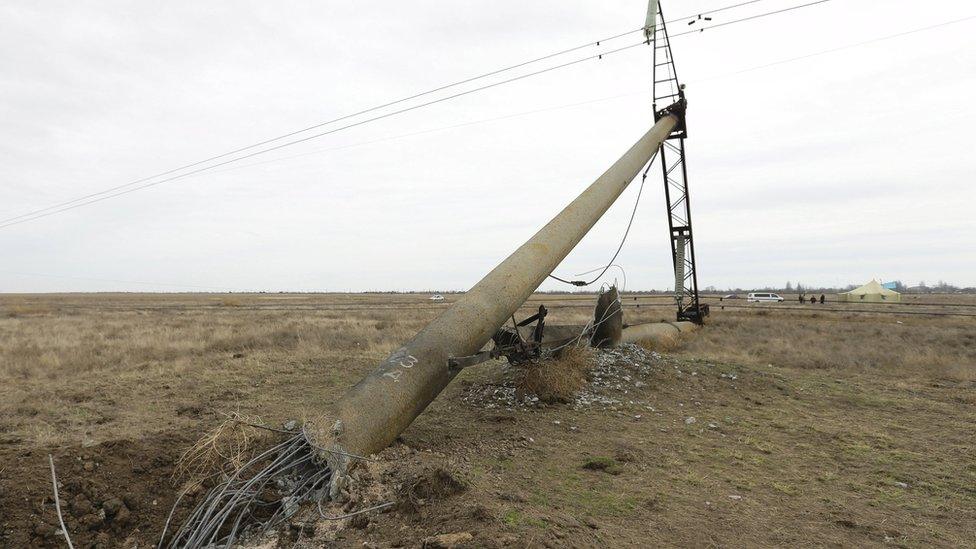
- Published23 October 2015
